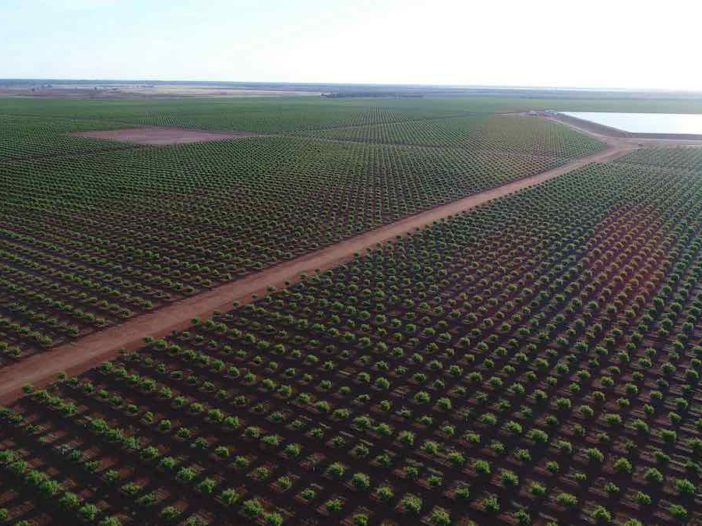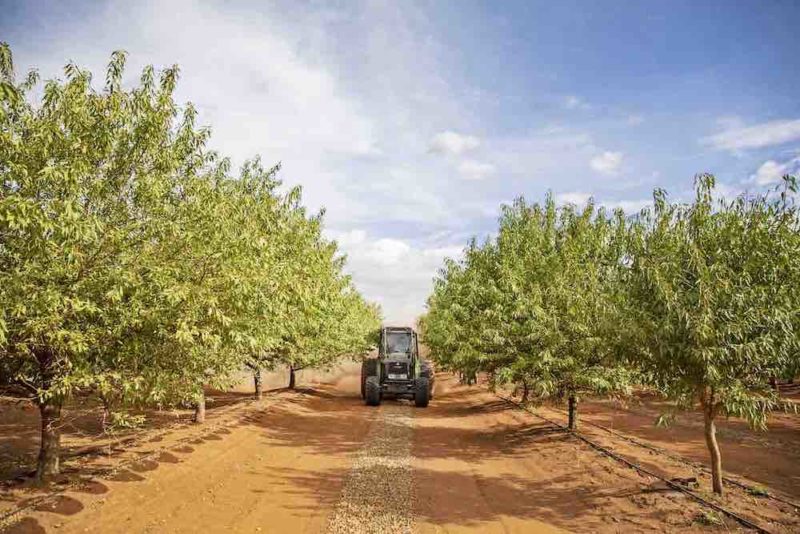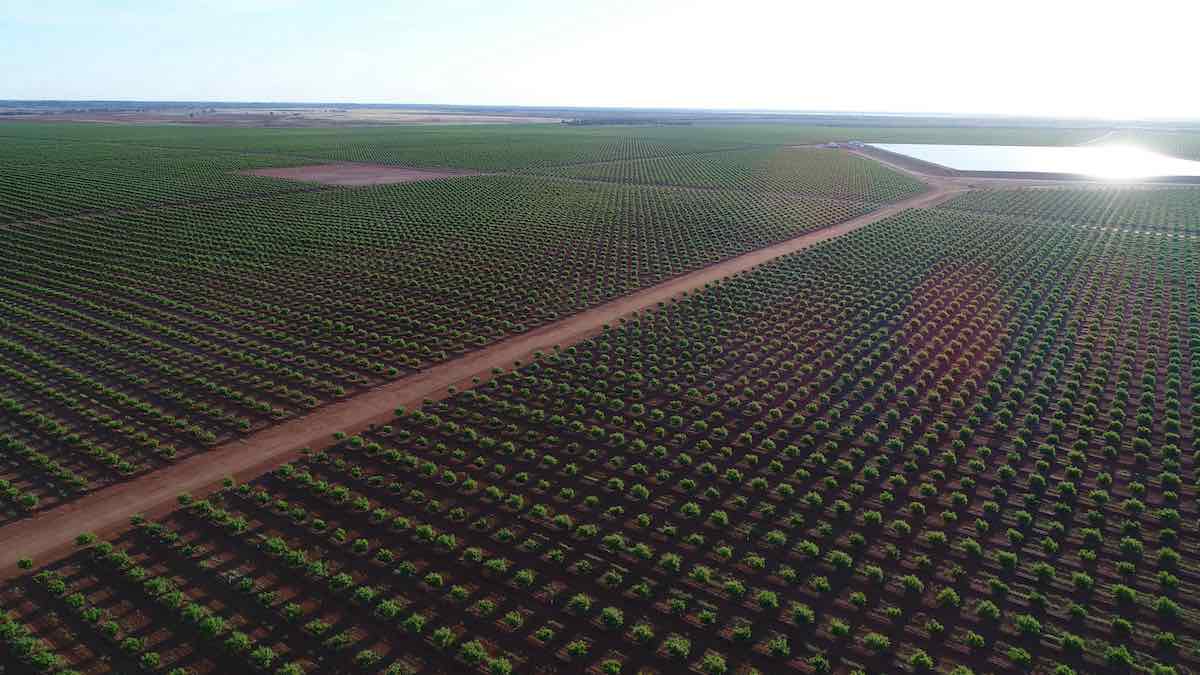
Major Australian gen-tailer AGL Energy will partner with a fruit and tree nut farmer in the New South Wales Riverina region to shift the irrigation system of a commercial almond orchard from diesel power generators to a mix of solar and battery storage.
AGL says the microgrid, to be built on-site at Cadell Orchards’ Sunraysia almond orchard, will combine a 4.9MW solar farm, a 4.4MWh battery system, underground powerlines, an inverter, grid stability unit and microgrid controller and communications.
The relatively newly planted 1,690-hectare almond orchard is not connected to the grid at its location outside of the town of Balraland, and so is irrigated with electric pumps that are currently powered by diesel generators.

The solar and battery microgrid is expected to reduce the orchard’s reliance on diesel fuel by 85 per cent and slash its energy costs by up to 40 per cent a year, just as the orchard’s trees start to reach maturity in the 2023/24 season.
In a statement to One Step Off The Grid on Tuesday, AGL said it was not yet releasing battery or solar vendor information, but could confirm that the microgrid would be designed around a single central solar inverter which would also run the DC coupled battery.
The gen-tailer says a grid stability unit will use a smaller, rapid-discharge battery to eliminate the need to have a diesel genset operating to provide spinning reserve and maintain system stability.
AGL is not yet a major player in the renewable microgrid sector in Australia, but says the Cadell Orchards facility, which it modelled and designed around the farm’s energy usage, is its second major microgrid announcement for 2022.
“AGL is committed to renewable energy and it’s through partnerships like this that we’re delivering on a low-carbon future with our customers and communities as we transition towards net-zero,” said AGL chief customer officer Jo Egan.
“With enough renewable energy to power a small town, this new solar farm is the size of two MCGs and will help Cadell Orchards cut thousands of tonnes of CO2 emissions each year,” Egan said.
AGL says the installation of the microgrid is due to start in April 2023 and should start to provide electricity by October 2023.
AGL will build, own, and operate the solar-powered microgrid under a long-term power purchase agreement, which will provide most of Cadell’s electricity needs.
David Armstrong, the CEO of Australian Farming Services, which manages Cadell Orchards, says the microgrid is about sustainability, good economics and building energy resilience for the business.
“We manage more than 4,400 hectares and nearly 1.5 million trees in some of Australia’s most productive horticultural regions,” Armstrong said.
“Working with AGL, we’ll be able to generate clean and renewable solar power which will cut our emissions, reduce our reliance on diesel fuel by 85 percent and deliver up to 40 per cent energy cost savings each year.
“Our orchard will also benefit from energy price certainty and better energy resilience and reliability.”

Sophie is editor of One Step Off The Grid and deputy editor of its sister site, Renew Economy. Sophie has been writing about clean energy for more than a decade.



